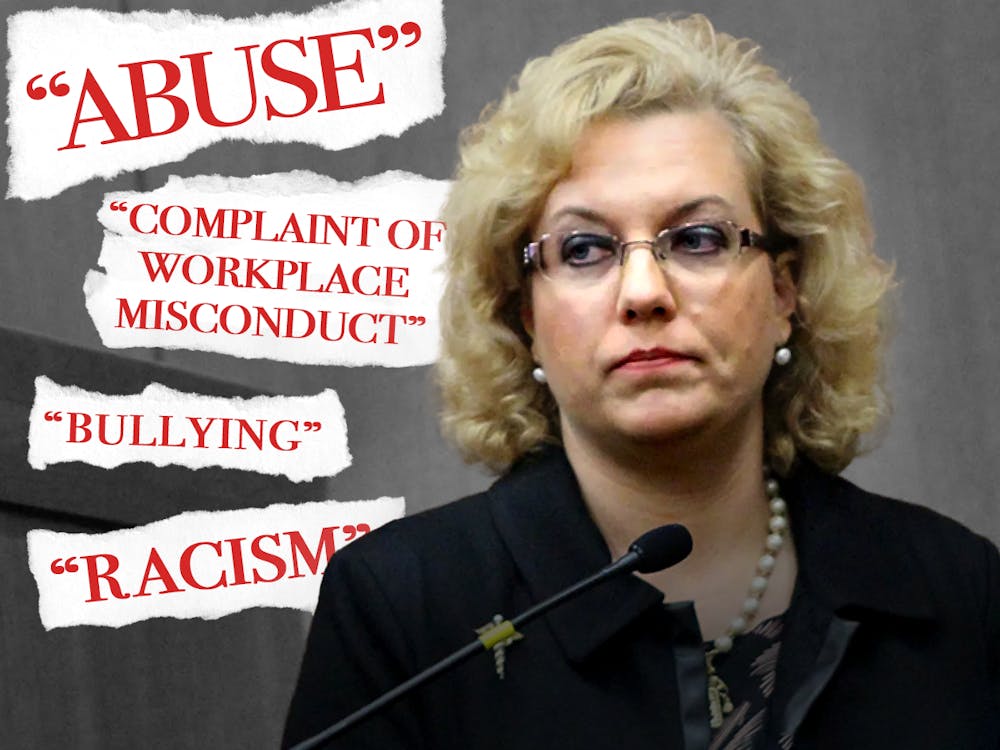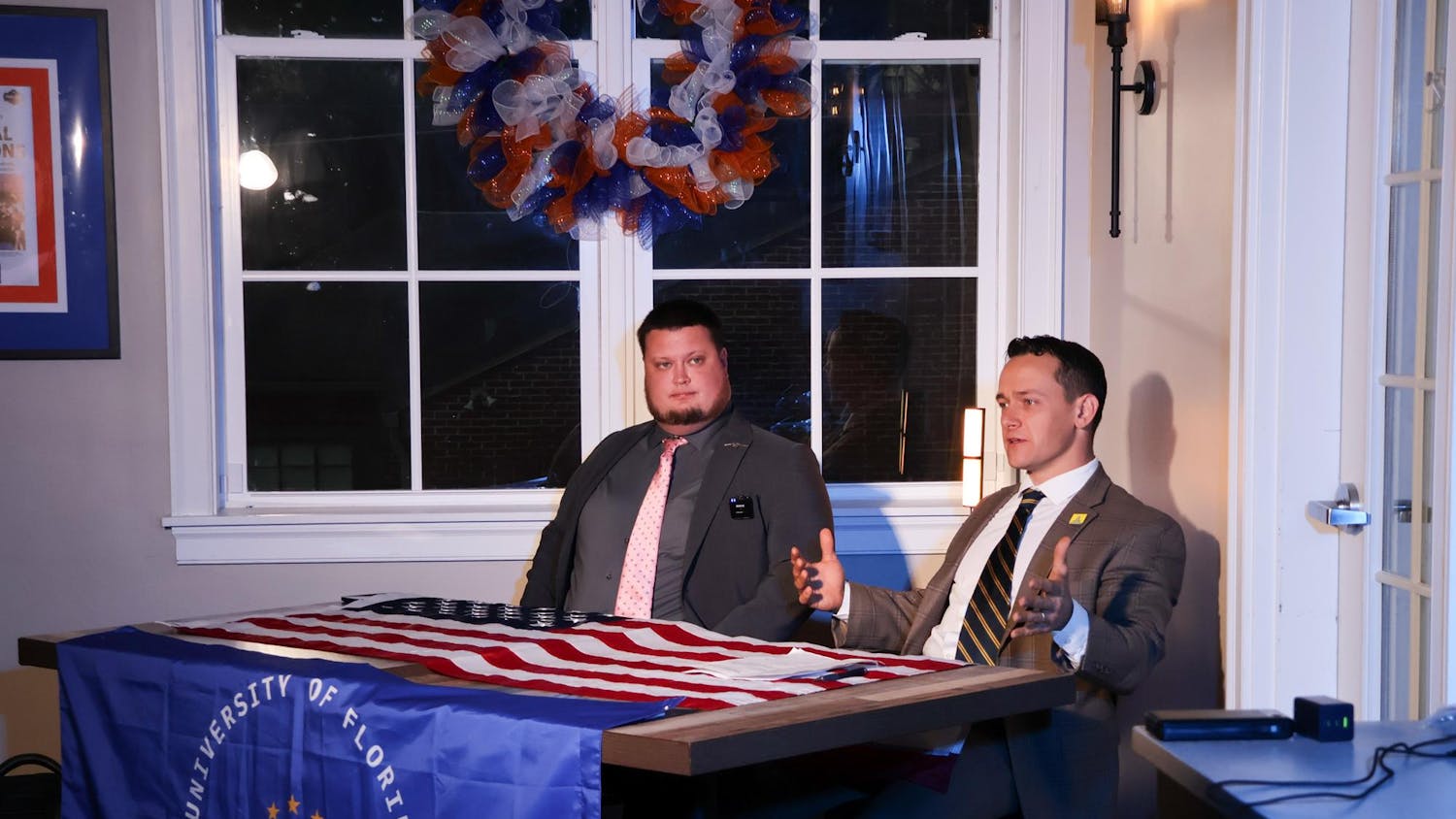A human resources investigation into UF Jacksonville Health child abuse pediatrician Barbara Knox substantiated accusations she created a hostile work environment while leading the University of Florida’s Child Protection Team, a child pediatric clinic handling cases of suspected child abuse and neglect.
In January, an investigation into Knox uncovered complaints that she bullied employees and created a hostile work environment at First Coast CPT in Jacksonville, which specializes in pediatric forensics.
Knox held forensic pediatric roles in Wisconsin and Alaska, where she faced scrutiny over her workplace professionalism and medical accuracy. She eventually resigned from both positions under intense pressure. A Wisconsin court even overturned a ruling that relied on Knox’s testimony alleging parents had abused their child.
Some raised concerns about Knox’s hiring at UF as early as February 2024. The criticism reached new heights when First Coast CPT employees accused Knox of pressuring workers who wanted her to quit, exhibiting racism toward coworkers and families of color and neglecting medical responsibilities.
The accusations led UF to launch a human resources investigation into Knox, led by investigator Noah Deutsch, which was completed March 31.
According to the report, the investigation began in October 2024, when UF Jacksonville College of Medicine Dean Linda Edwards requested UF Human Resources look into claims Knox created a toxic work environment following a letter she received detailing the doctor’s behavior.
Knox wasn’t the investigation’s sole subject. It also examined Jennifer Koerner, First Coast CPT’s finance manager and division director, whom CPT employees claimed collaborated with Knox to bully and intimidate employees.
UF HR interviewed 21 witnesses, including First Coast CPT employees, former employees and UF Health Jacksonville officials.
After conducting the interviews, the investigation concluded Knox had violated UF regulations against disruptive behavior by creating a hostile work environment. The investigation did not substantiate accusations against Koerner.
Deutsch’s report concluded “CPT has been obstructed in its mission and its reputation in the community has been damaged” due to the work environment Knox cultivated.
Once Knox learned she was being investigated, she attempted to obtain the identities of and collect “dirt” on employees who had complained against her, according to the report.
“Knox all but admitted that she wanted to find out who had been complaining about her,” Deutsch wrote.
He described Knox had been “compromised” in her judgment, and she “intended to do professional harm to subordinates,” he wrote.
The investigation supported additional claims employees made against Knox, including reports she made racist comments to CPT employees and demanded “employees do personal tasks for her,” such as transporting her children, reviewing her child’s college application essay and doing maintenance work at her house.
Knox said she didn’t make employees do tasks for her. The investigation said her claims that subordinates volunteered seemed disingenuous.
CPT employees claimed Mark Hudak, the chair of UF Health Jacksonville’s pediatric department, stood behind Knox and allowed her to terrorize them and run CPT at her whim. UF substantiated the claims in its investigation.
According to Deutsch’s report, Hudak, knowing Knox would face criticism for her work history in prior states, tried to shut down potential dissent.
“Hudak delivered two clear messages,” Deutsch wrote. “Knox was free to micromanage, and employees who discussed Knox’s past would face consequences.”
As a result, Deutsch wrote there was an open revolt among CPT employees.
Witness interviews with current and former CPT employees detailed significant emotional and professional turmoil for Knox’s targets.
Jacqueline Sandefer-Gonsen, the team coordinator for CPT’s Tallahassee office, said Knox yelled at her on several occasions and placed a hand over her face while telling her to “shut up” during a meeting.
Sandefer-Gonsen felt as if she had no choice but to resign, she said, and ultimately did so. She received a resignation acceptance letter stating she didn’t leave in good standing, a note future employers may look at.
Jenna Peace, a First Coast CPT case coordinator, said she and other coordinators loved helping children but feared having their jobs made “a living hell” because of Knox’s behavior, in addition to the stress of handling child abuse cases.
Melissa Scites, the director of health care administration for the Department of Pediatrics, said she didn’t witness any form of bullying in Knox’s conduct, but she didn’t work in the First Coast CPT office. However, Knox’s communication and leadership could have been better, she added.
She rebuffed the claim Hudak had threatened to fire anyone who discussed Knox’s previous roles in Wisconsin and Alaska. Instead, he assured prior claims against her were unfounded and anyone who discussed them might be addressed, she said.
Jacob Barnes, a medical student who did rotations at First Coast CPT, said Knox spoke harshly about employees behind closed doors. He said she often prefaced such discussions with, “Don’t tell anyone this, but.”
In his interview with UF HR, Hudak fiercely defended Knox, describing her efforts leading the CPT as heroic. He said employees set out to “create chaos” because they were unhappy with Knox’s firm but necessary leadership style.
Knox said in her interview that employees discussing her professional record amounted to hazing. She denied the allegations against her. She said employees had offered to review her daughter’s college essay, which the report described as “plainly disingenuous.”
Knox said she felt retaliated against for making helpful changes to CPT’s operations.
Knox did not respond to a request for comment.
Alyssa Phipps-Poe, First Coast CPT’s former case manager, originally provided her account of Knox’s behavior under anonymity in January. She said the investigation failed to thoroughly examine Knox’s behavior.
“[Deutsch] did not meet with all CPT employees, only those who proactively came forward,” Phipps-Poe said. “The experiences of many who witnessed or were subjected to Dr. Knox’s behavior are going to really remain unheard.”
The report’s understated analysis reflects how “[Knox’s] behavior went unchecked for over a year,” she said.
UF spokesperson Cynthia Roldan wrote, “Dr. Knox signed an agreement on June 24 that constitutes a notice of resignation from UF Health effective August 15, 2025.”
It marks Knox’s third resignation from a lead forensic pediatrics position since 2019.
Contact Avery Parker at aparker@alligator.org. Follow him on X at @AveryParke98398.
Avery Parker is an English and History senior and the Spring 2026 El Caimán editor for The Alligator. He previously worked as The Alligator's University desk editor, as well as a reporter for the University and Enterprise desks. He doesn't know the meaning of the word "freetime," but he can usually be found deep in an archive reading 19th century documents or tending to his four cats.






